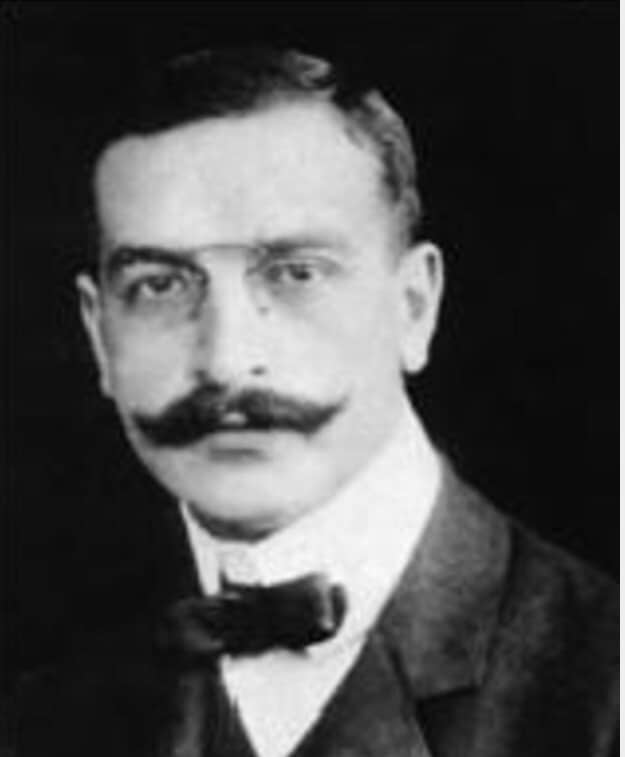It is hard for me to think of an author who has had a greater influence on me throughout my life than George Orwell. When I was a kid I read Animal Farm and then all of the essays very early on. I remember wanting to read 1984 for ages, and my dad telling me that it was too grown up for me. Finally, aged about 11, I sneaked a copy home from the school library and devoured it.
Books like The Road To Wigan Pier and Down and Out in Paris and London made a huge impression with their visceral descriptions of working-class life and destitution, and a lesser-known novel like Keep The Aspidistra Flying remains a favourite.
These days it is almost a cliche to love Orwell, and, while he’s one of the greatest political thinkers to have come out of the UK last century, he is not the greatest prose writer when you compare him to Nabokov, Joyce or even Henry Miller (all rough contemporaries). When I last read 1984 I found the plot somewhat hammy and wooden, like a dodgy old black-and-white spy movie. However, that book taught me more about politics than anything I’ve read before or since, and it is still essential reading if you want to understand what is going on in the world today.
Orwell’s essays and journalism are also fantastic and if you haven’t dived in then I’d highly recommend that you do so. I keep meaning to buy a complete collection again—I probably will now that I have my Kindle. But one of the books I rescued from my old apartment was a small Penguin collection of about five of his short nonfiction pieces which I’ve been rereading recently. It contains ‘Politics and the English Language’, which includes his oft-quoted advice for writers, as well as ‘The Lion and the Unicorn and the English Genius’, an analysis of England written in the 1940s that had me laughing out loud with its contemporary relevance:
The insularity of the English, their refusal to take foreigners seriously, is a folly that has to be paid for very heavily from time to time.
And:
England is the most class-ridden country under the sun. It is a land of snobbery and privilege, ruled largely by the old and silly.
And:
A family with the wrong members in control—that, perhaps, is as near as one can come to describing England in a phrase.
But the essay that drew me in in the first place, and which I want to discuss here, is called ‘Why I Write’. In it, Orwell identifies four reasons why people choose to be writers and then measures himself against them. I’d like to consider them now in the contex of my own writing.
1. Sheer Egoism
Desire to seem clever, to be talked about, to be remembered after death, to get your own back on grown-ups who snubbed you in childhood, etc. etc. It is humbug to pretend that this is not a motive, and a strong one.
Check. Of course blogging didn’t exist when Orwell was alive, although journalism and the personal essay certainly did. But I’ve been plugging away at writing for pretty much all of my life, and certainly since I was a very young child. My mother bought me a typewriter when I was four, and she remembers me sitting at it for hours, tapping out stories in the garden.
For about a decade I tried to write novels. I have three of them, plus various unfinished pieces and a bunch of short stories, sitting in the cloud somewhere. Of course, it’s extremely hard to get published by a legacy house these days, but I kept at it, approaching literary agents and even taking an MA in Creative Writing in an effort to impress the industry.
While I got a lot of praise and encouraging words from those agents, I haven’t yet managed to break through that particular glass ceiling. But at the same time, as my writing for ROK began to get noticed, and then this website started to grow, there came about a fundamental shift in my priorities. Because what I was searching for through those legacy publishers—an audience—has now come to me online, and it’s growing fast. So I effectively bypassed the gatekeepers and found my own way to connect with people.
As you’ll be aware if you read this site regularly, I post an article every day, as well as writing my books in the background. What is that if not sheer egoism? Here I am, sitting down each morning, knocking out a thousand words or so about some girl I slept with and expecting that the world be interested. Insanity!
Of course, I’m being a little harsh. The reason I write about my own experiences is primarily to help others. I can only talk with authenticity about things I have experienced personally, so I do that, but I always try to pull out lessons that have a relevance for the reader.
Nevertheless, writing everyday about oneself every day in sometimes flashy prose can be considered as nothing if not egotistical.
2. Aesthetic Enthusiasm
Perception of beauty in the external world, or, on the other hand, in words and their right arrangement. Pleasure in the impact of one sound on another, in the firmness of good prose or the rhythm of a good story. Desire to share an experience which one feels is valuable and ought not to be missed.
Yes to all of the above. Actually, ‘the impact of one sound on another’ is the fundamental thing that draws me back to the keyboard to write time and again. It’s the tiny addictive spark that has me hankering for more.
Once or twice in every writing session I will come up with some arrangement of words that pleases me: because of the image I’ve created, because of the way they look on the page, because of the way they sound. It is here where for me the real joy of writing is located.
‘Desire to share an experience which one feels is valuable.’ This happened just the other day when I met Doreen, a lady in her seventies whose husband had died, in a pub in North London. It was a simple conversation that lasted for maybe ten minutes or so, but it made an impression on me.
The next morning, when I awoke, it was still alive in my head and I felt I had to share it with people, not least because the simple, straightforward love that Doreen described for her husband seemed in stark contrast to the negativity that many have about marriage these days.
Bringing the meeting to life in prose, describing the pub and Doreen and our conversation as vividly as I could was primarily an aesthetic pleasure—capturing real life in words is the thing I love most of all, and something I discovered a few years ago when I used to write about nightlife and sex for VICE under an assumed name.
3. Historical Impulse
Desire to see things as they are, to find out true facts and store them up for the use of posterity.
I think consciously about this one less, but yes, there is certainly a desire in me to write about society and in particular inter-gender relationships as accurately as I can.
I am not quite egotistical enough to imagine that my writings will be used as historical sources by ‘posterity’, I am more interested in analysing things that happen to me and that I observe to try to understand the present—to ‘see things as they are’.
4. Political Purpose
Using the word ‘political’ in the widest possible sense. Desire to push the world in a certain direction, to alter other people’s idea of society that they should strive after . . . no book is genuinely free from political bias. The opinion that art should have nothing to do with politics is itself a political attitude.
This one applies to me the least. Unlike others who write in my niche, I am not interested in pushing a particular worldview on my readers, or even ‘arresting the decline’ (if you believe that there’s a decline to arrest, that is.) My interest is aesthetic. At root I am a disappointed romantic, and I take an almost perverse pleasure in describing how the world no longer tolerates romance.
At the same time, I am also an adventurer, driven by my compulsions around sex, writing and so on, and I want to document that. Of course, the bread-and-butter of a site like this is pickup tips, and my primary ambition is to help other men achieve the kinds of sex lives and freedom they desire. But I also want to offer an honest portrayal of what the bachelor (or Modern Casanova) lifestyle is like for a man in his forties, warts and all. As far as I’m aware, no-one else is really doing this, or at least not with my honesty, so I think I offer something unique.
Of course, as Orwell nearly says, no writing is ‘genuinely free from political bias’ and, by not offering any particular solution to the societal problems I identify, other than ‘more game’, I suppose I am presenting an ‘enjoy the decline’ message.
But it’s not as simple as that. I am essentially a libertarian and I believe that people should be allowed to do as they wish. I am also firmly of the belief that the only thing you can really influence is yourself and your own behaviour, and the little world that surrounds you.
As such I am not about to encourage people to hit the streets with placards any time soon. Instead, I am interested in what personal freedom we can each carve out for ourselves using the tools of game, location-independent business and self-development.
Orwell said that each of the four factors would apply variously to different writers depending on their own personal quirks. Perhaps surprisingly he said that 1-3 applied to him most and 4 the least. While we think of Orwell almost entirely as a political writer today, he says that had he not lived in a time of such upheaval he would probably have ended up a much more bucolic, descriptive writer.
I would say that I too am driven mainly by reasons 1-3. But then at the end of his essay, Orwell chooses to reiterate his own baser reasons for writing, and it is hard for me to deny them for myself either:
Looking back over the last page or two, I see that I have made it appear as though my motives in writing were wholly public-spirited. I don’t want to leave that as the final impression. All writers are vain, selfish and lazy, and at the very bottom of their motives there lies a mystery. Writing a book is a horrible, exhausting struggle, like a long bout of some painful illness. One would never undertake such a thing if one were not driven on by some demon whom one can neither resist nor understand.
For a collection of my best writing on game from the last five years, get a copy of How To Get Hot Girls Into Bed on Amazon.
For exclusive additional free content every week join my subscribers list here.
For daily updates follow me on Twitter







As someone who is meaning to write fantasy novels of his own, the reasons you describe apply to me very well. I must admit that I mostly write for number 1, selfish reasons, perhaps that is why I end up leaving most things left to be finished. Anyhow, I think Orwell will be an interesting read.
Keep up with the good work.
Hey man thanks for the comment and good luck with the writing! Troy